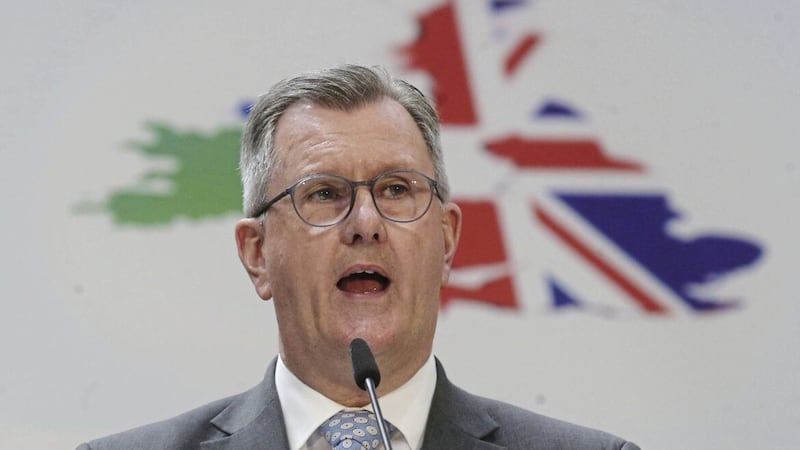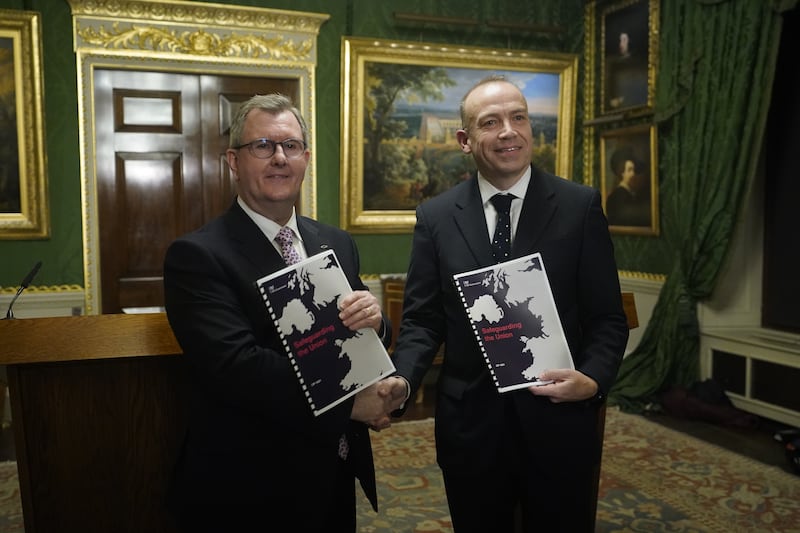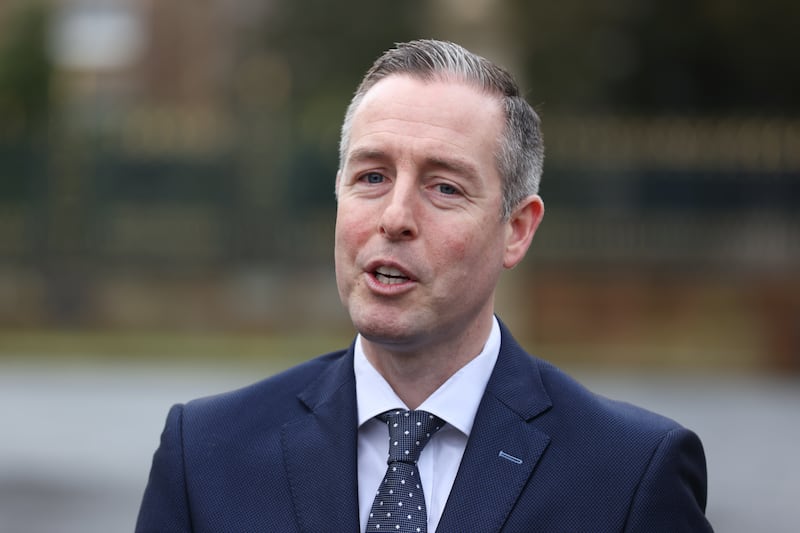THE longer the DUP’s boycott of the institutions goes on, the more its selective, self-serving priorities will be exposed. The deeper the cost-of-living crisis, the less validity its stance on the protocol will have.
The hill on which Sir Jeffrey Donaldson and his colleagues are apparently willing to die has little real impact on everyday life, while his party has in the past actively and tacitly tolerated much more pernicious policies that affect people’s life chances.
It’s worth remembering that in recent years, only the DUP’s opposition to an Irish language act has led to sanctions similar to those designed to remove the protocol.
Another week has brought another set of official data suggesting economic growth in the north has outpaced Britain. It’s the kind of performance that decades of reviews and strategies sought to instil, and even then the ambition would’ve merely been to match productivity and prosperity across the Irish Sea rather than surpass it.
Figures published last week by the Northern Ireland Research and Statistics Agency (Nisra) show economic output in the north reaching its highest since the pre-crash levels of 2007.
Although the picture the data paints is not entirely upbeat and needs to be caveated with warnings about the strong possibility of recession, it once again highlights how the region has been insulated from the worst impacts of Brexit.
The latest monthly Ulster Bank PMI (purchasing managers index), published on Monday, is less encouraging. It indicates that the momentum identified in the longer-term Nisra data is waning, with rising costs and falling confidence impacting more immediately on business confidence.
Brace yourself – it’s a trend that’s likely to become more apparent over the coming months and one that’s bound to be reflected more broadly, arguably to a much greater degree in Britain. International forecasters such as the IMF and OECD believe the UK is more susceptible to recession and persistently high inflation than other Western countries.
Economist Richard Ramsey said the marked reversal in regional manufacturers’ fortunes identified in the Ulster Bank report was the biggest month-on-month slump, outside of lockdown, since the index was first published almost 20 years ago.
He said that while many manufacturers had benefited from the protocol, the current political impasse between the British government and the EU had prompted concerns over the durability of its benefits.
So it’s not the protocol per se that’s the problem but rather the uncertainty around its sustainability in the face of relentless undermining by the British government, a co-signatory to the Withdrawal Agreement that delivered the Irish Sea border.
Meanwhile, economic modelling based on the outcome the Tories and DUP envisage is conspicuously scarce, as they appear clueless to what exactly it will entail, short of some form of dystopian regulatory hybrid that no serious businessperson could endorse.
The protocol is imperfect, cumbersome and potentially union-subjugating but it has given Northern Ireland a clear and unprecedented economic advantage that is waiting to be fully exploited.
Yet at every opportunity the DUP and its anti-power sharing allies choose to highlight what they regard as the downside to the post-Brexit trade arrangements. The claims about a “27 per cent increase in costs” were inflated, exaggerated and ultimately discredited, while arguments about less choice have applied solely to the limited number of supermarkets with supply chains based in Britain.
At same time, other more credible statistics point to the myriad problems that have existed for years but fail to elicit the kind of nuclear response the DUP has adopted in opposition to the protocol.
Recent rising food and energy prices come against a background of long-term problems in a range of sectors – health service waiting lists, educational underperformance, a housing shortage, the skills deficit, the climate crisis, a glacial legal system, and poor water quality, to name just a few.
These can be coupled with unquantifiable but no less glaring shortcomings in public services, such as failing infrastructure, a broken public transport system and empty, dilapidated town and city centres. Inaction over any of the above has never prompted a walkout or the refusal to re-enter government.
Against a growing sense of political stasis and frustration over the cost-of-living crisis, is the DUP willing to relegate the numerous, deep-seated problems that afflict our society below the constitutional wrangling and culture wars that so readily preoccupy its representatives?
We are facing a winter of discontent with households facing unprecedented hardship but it appears the DUP has its own priorities.









